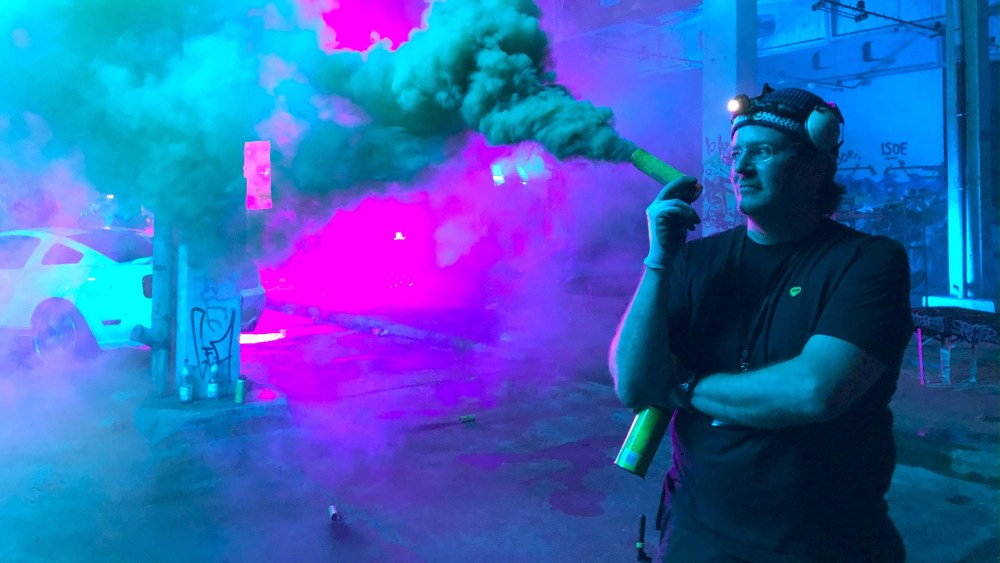An unsung master of movie magic, Solon Luigi Colani has worked on some of the biggest Hollywood movies ever shot in Germany and beyond, among them works by Quentin Tarantino, Ron Howard, George Clooney, Denis Villeneuve, Paul W.S. Anderson, Gore Verbinski and the Wachowskis.
His enormous range of practical visual effects have also become regular fixtures in Germany’s domestic film and TV industry, where he has helped filmmakers and showrunners bring their visions to life.
In Matthias Glasner’s current Berlinale Competition screener “Dying,” for example, he created a pneumatic pump, hose system and the necessary chunky liquid for a dramatic scene in which a character falls ill at the Berlin Philharmonic concert hall.
Colani established his Berlin-based company Pyro Labs in the 1990s as a side business while working as a young IT specialist. Initially focused on firework displays for weddings, birthday parties and other live events, the company eventually moved into film when Colani was hired to assist on “Inglourious Basterds,” for which he built electronic flame control consoles used in a key scene.
With a knack for inventiveness and deep knowledge of chemistry, biology, model-making, electronics and mechanics, Colani has since become a go-to expert in the practical effects field.
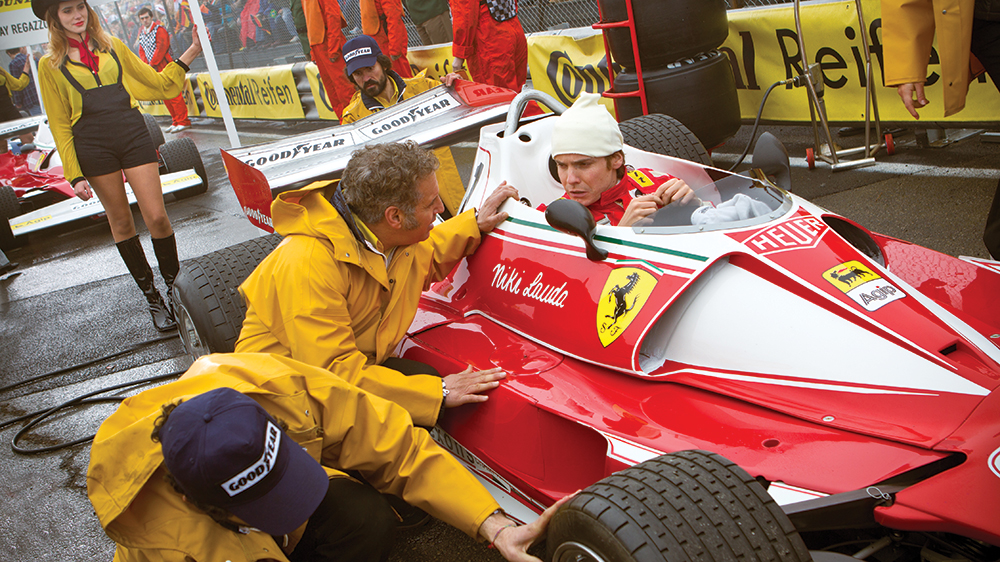
Jaap Buitendijk/Universal Pictures
The most challenging task he’s had to date was creating a fire-proof ceramic body replica of Niki Lauda’s Ferrari 312T2 Formula One car used for the pivotal crash scene in “Rush,” Colani says. While he had an idea of what kind of ceramics could be used, initial tests proved disappointing as the ceramic mix took too long to harden and remained brittle. “I really had to crank up the research to find some other solution within five days.”
For the World War II thriller “Monuments Men,” Colani built around a dozen replicas of a vintage U.S.-made bazooka from a historical weapons rental company in Berlin that was “prohibitively expensive and not really suitable for harsh handling on set,” he explains.
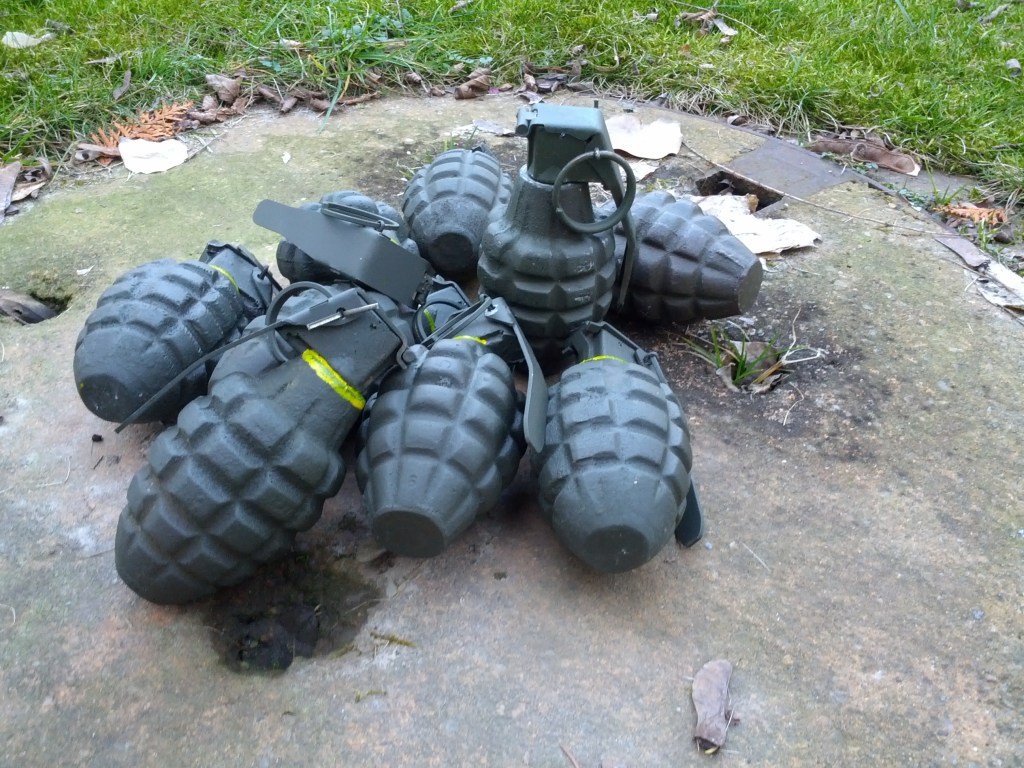
Solon Luigi Colani
He also made some 30 copies of “those iconic American pineapple hand grenades” that were much lighter than the iron replicas provided by the rental company.
Colani’s eclectic designs span centuries, from the rotating canon system used by Luke Evans’ Aramis to attack the Tower of London from an airship in the 2011 swashbuckling epic “The Three Musketeers” to the ceiling-mounted hologram projector that brought Ryan Gosling’s character’s AI girlfriend to life in “Blade Runner 2049.”
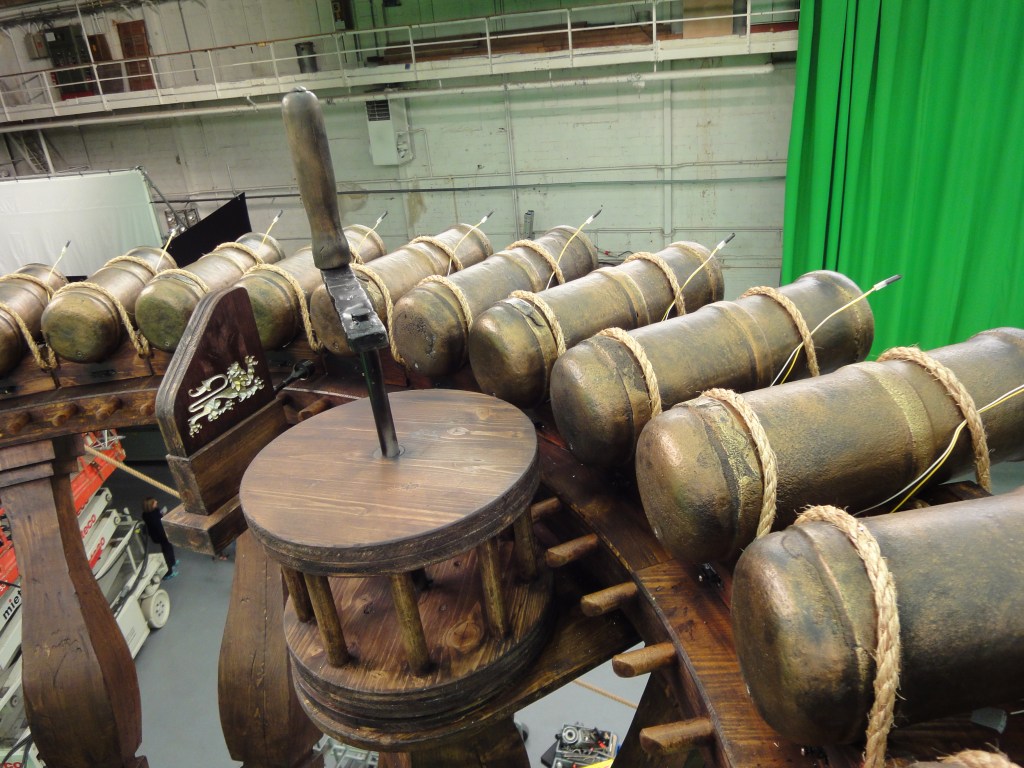
Solon Luigi Colani
High-tech weapon props are a Colani specialty. His designs can also be seen in “Without Remorse,” “Gunpowder Milkshake,” “The Matrix Resurrections,” “Uncharted” and the Luc Besson-produced “Renegades.”
On “Without Remorse,” he not only customized the Glock 17 used by Michael B. Jordan according to the actor’s requests, such as modifying the grip, partly gold plating parts, adding his character’s initials and a cobra head, he also designed and built parts for an old working Soviet DShK heavy machine gun “to hide a little bit its origins and make it look more modern.”
For “Gunpowder Milkshake,” he created a custom-made Colt 1911-style pistol with attachable bayonet for Lena Headey’s assassin character and built a copy of the famous M134 Minigun with a Gatling-style rotating barrel.
In the latest “Matrix” sequel and “Uncharted,” Colani equipped rubber gun replicas with programmable electronics and high-powered LEDs in the muzzles that emit bright flashes, “so you don’t have to worry about shadows and lighting in post,” he explains. And it’s also much safer. “This is a really cool way of doing close-ups of gun effects where you shoot somebody in the face.”
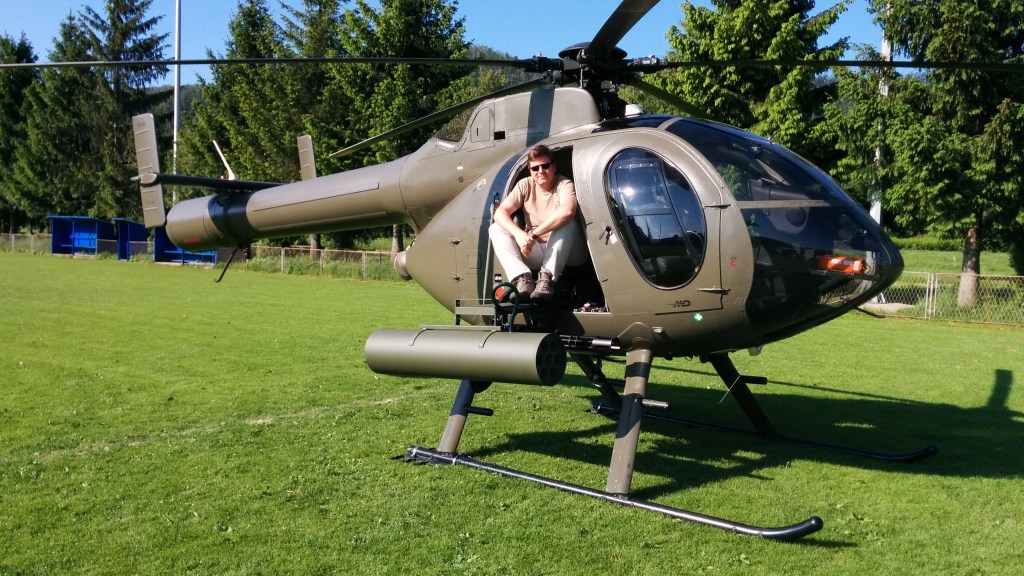
Solon Luigi Colani
“‘Renegades’ was another cool project because I got to build a military variant of an MD 500 helicopter.” Colani made the carrying wing, mounting hardware, two fake machine guns and rocket pods that could be attached to a civilian version of the helicopter used on the shoot in Croatia.
Colani’s talents go far beyond firearms and heavy weapons, however.
On “Cloud Atlas,” he designed and built a 3D hand controller so the directors could operate a hexapod motion base manually.
For “A Cure for Wellness,” he created an ultra-thin head-piece for Jason Isaacs’ character that could be worn beneath his special effects makeup and to which a deadly head-crushing shovel was mounted. He also provided the custom-made, color-matched kites flown by patients of the mysterious sanitarium.
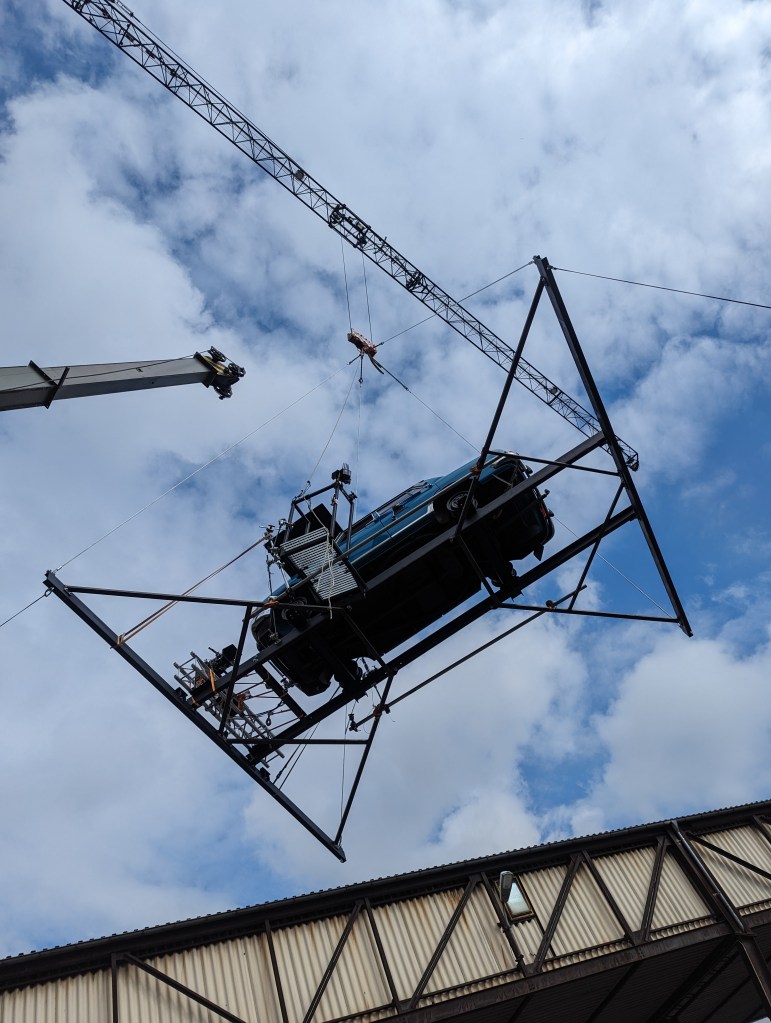
Solon Luigi Colani
Colani’s wide range of skills is also evident in the rigging he designed and constructed for a challenging car stunt in an upcoming German TV series in which a car is hoisted high into the air by a magnetic crane.
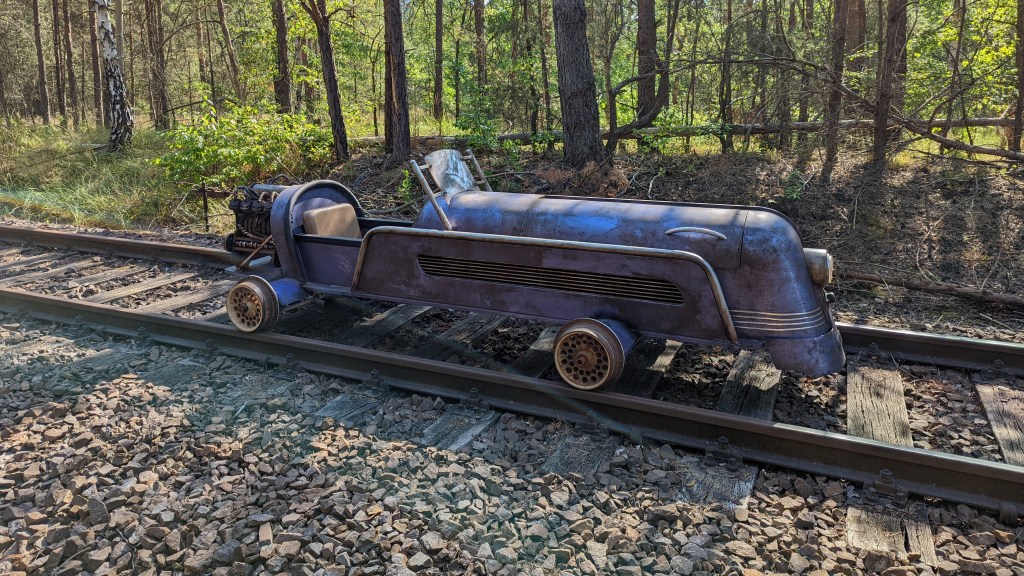
Solon Luigi Colani
He also created a steampunk-style rail hot rod for the 2023 German kids pic “Mission: School of Fun” (“Die unlangweiligste Schule der Welt”).
Among his many contributions to the hit German series “Babylon Berlin” was the fecal sludge and tank he concocted for a Season 1 episode in which a Trotskyite escapes a massacre by hiding in an outhouse latrine.
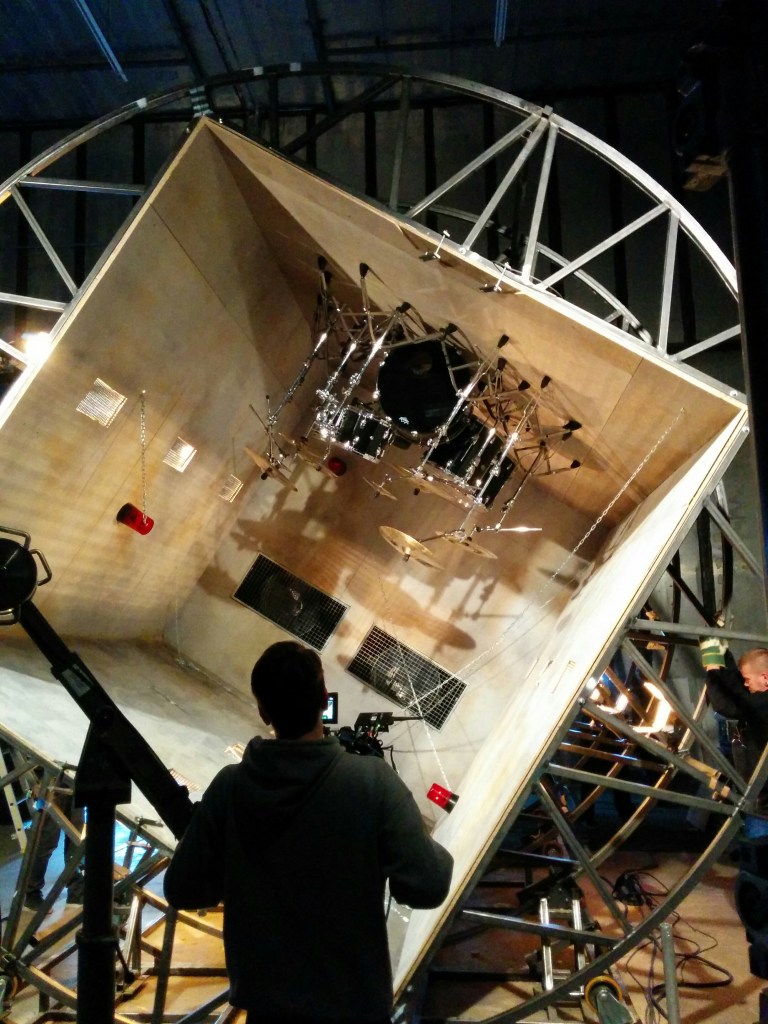
Solon Luigi Colani
In addition to film and TV productions, Colani has worked on music videos for the likes of Rammstein and Olexesh as well as Australian metalcore band Parkway Drive, for which he built a gravity-defying, rotating set for the music video “Crushed.” The band was so exited about the effect that they ordered a stage version for their live shows, in which drummer Ben Gordon rotates 360 degrees while playing.
Colani attributes much of his eclectic talents and interests to his famous father, the late industrial designer Luigi Colani, who taught him the basics of design process and how to work with high-tech materials, build models and make molds at an early age.
It contributed “a lot because I had the opportunity to work with materials that would have been downright impossible for even normal hobbyists to buy at the time. When I was eight years old my father gave me sheets of carbon and glass fiber and epoxy resin. I worked with this at home. At that time using carbon fiber was cutting-edge space technology.”

